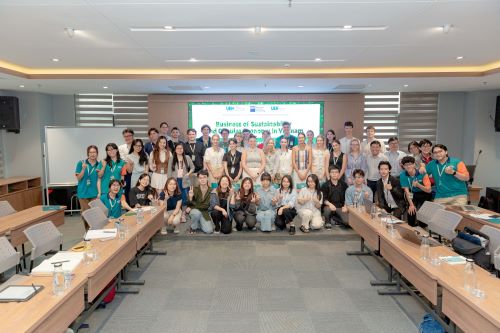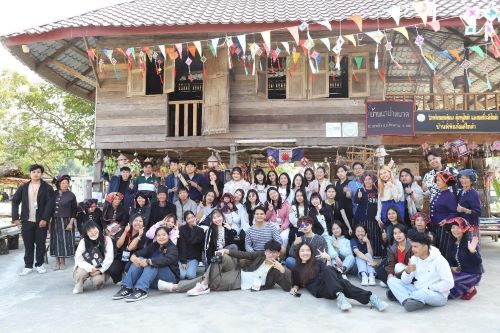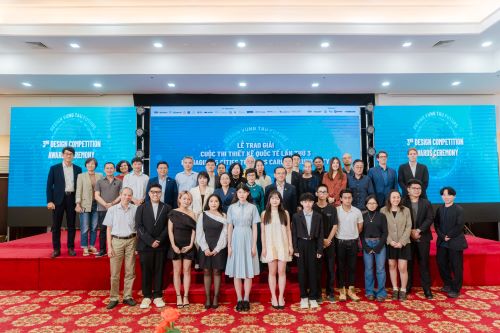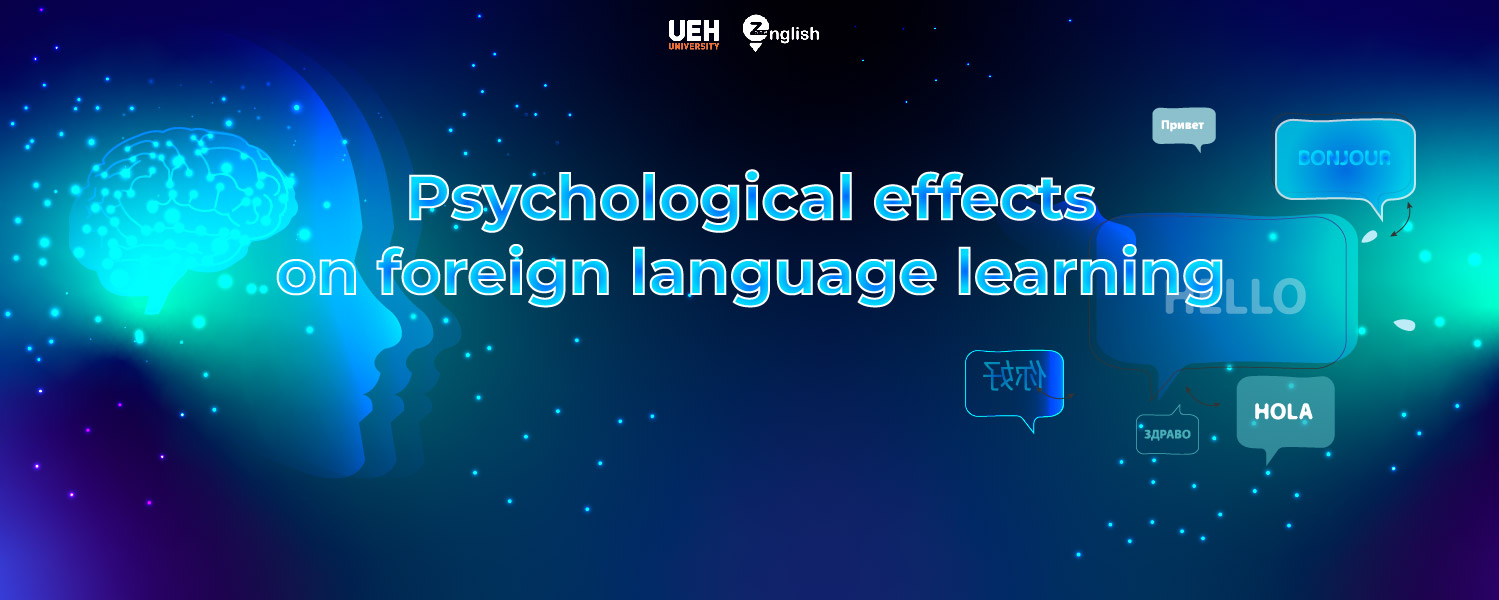
Psychological Effects on foreign language learning
When it comes to learning foreign languages, Psychological Effects are mysterious variable that might be a blocking stone to some people but turns out to be a strong tool for those who leverage them appropriately. To see how psychological effects impact your learning process, this article will give a general overview of difficulties faced by learners and analyze how they can be solved.
What are the barriers?
Learning Languages has been considered a lifelong and arduous journey that takes time and effort. The first step is always the hardest, they said. In the early stages of learning English, learners are afraid of making mistakes and do not believe in themselves or their abilities. Furthermore, many learners place importance on what others think or look at them when they use English, becoming obsessed with people's judgment which stifles their development.
Aim higher, an intermediate user is estimated to know about 6000 to 8000 words, while a proficient user knows about 20000 . During this period, self-learning and active recall have been scientifically proven to aid vocabulary. Still, many learners are too lazy to recall or make a habit of self-learning actively. And procrastination is by no means the least difficult issue that language learners encounter.
To tackle those problems, in this article, we will discuss 04 psychological effects that will give you a useful hand in learning languages, especially in English. Each psychological effect will help you overcome a specific problem by changing your perspective, which shapes your behavior and actions.
Implementation intention effect
An implementation intention is a self-adjusting strategy in the form of an “if-then plan” that not only leads to better goal attainment and helps modify habits and behaviors . It is subordinate to the intent of the goal because it specifies when, where, and how to specify the part of the action toward the goal. In a word, Implementation intention is an efficient way to set a goal or target by specifying steps needed to achieve your goal.
Proactively encouraging individuals to make plans and consider when, where and how they can act on their intentions. However, when setting a goal or developing a new habit, people generally focus only on the outcome instead of the steps needed to achieve them. Positive intentions, but often fail to act on. For instance, you have set yourself a goal to learn 500 words a month, but somehow, you are likely to procrastinate and that target becomes “hopeless”.
This is where “Implementation intention” can be optimized and help you reach your goal. For the case above, after determining your goal, “500 words a month”, you have to figure out how you are going to execute it by asking yourself questions like: “How many words I can learn a day” or “When can I make time for that” and then see how efficient it is!!
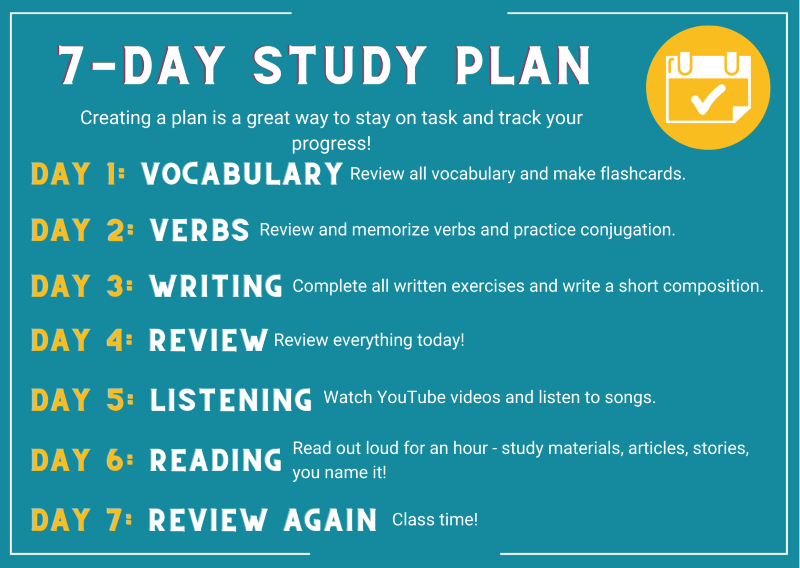
Galatea effect
In Greek mythology, Galatea is a statue sculpted by the ancient king of Cyprus, Pygmalion. After sculpting her, Pygmalion fell in love with Galatea and prayed to the gods, asking them to bring her to life. The goddess Aphrodite answered his prayer and brought her to life, and they lived happily ever after. Originating from this story, the Galatea effect refers to the individual's belief in their abilities affecting their performance . The galatea effect is the phenomenon whereby higher expectations lead to higher performance through self-fulfilling prophecies. The more you are confident in your ability to reach your goals, the more likely you will make them come true. Fear and self-doubt are the agonizing obstacles that we have to face to succeed, but by believing in ourselves, we automatically get rid of them.
So how can we apply the Galatea effect to our English learning journey? Possibility, capacity and merit are what we have to determine. Possibility means you have to figure out goals and targets which are feasible and possible to reach and achieve, for example, a beginner shouldn’t tell himself to get a band 8.0+ IELTS in 1 month. Instead, being able to understand and use English at a basic level is what he should work towards. Then Capacity involves identifying, recognizing and promoting those skills that will eventually help us reach our goal. Different goals and different learners lead to different skills that we need to focus on. For example, “I am good at communicating and I also like making new friends so I optimize my strengths to help me learn English by making friends with native speakers via social media platforms”. And finally, Merit or self-perception, evaluate yourself and figure out who you are, what you can do, and what you deserve. If you don’t believe you can and deserve to achieve something, you probably won’t. That’s how the Galatea effect works.
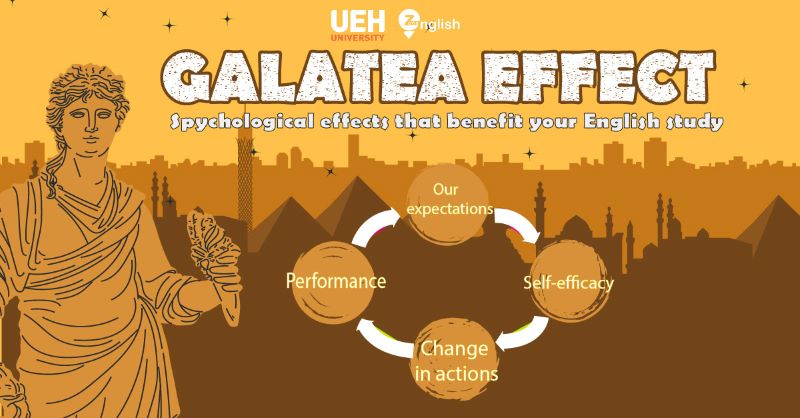
Spotlight effect
The spotlight effect is a phenomenon in which people exaggerate how much others notice their appearance or behavior (Calderaro, 2021). When practising English or any foreign language, learners may feel anxious by overthinking whether their mistakes are embarrassing. Hence, they refuse to express themselves confidently but instead have some nervous habits like humming, ticks, accent,... This lead to a side effect of a reverse spotlight in which people fail to control these habituated gestures when focusing too much on the audience’s views (Özdem-Mertens et al., 2022).

Spotlight effect illustration
In general, the spotlight effect is a double-edged blade. It helps us to be self-aware of our behavioral styles of speaking languages to best perform in front of the crowd but also blinds us from our nervous habits. The best solution is to practice with your close friends or family members first and ask them about your bad gestures. Then, try to control them when nervous and practice as much as possible to get familiar with the “spotlight”.
Testing effect
Also known as active recall, this effect proposes that long-term memory improves when a portion of the learning time is spent retrieving information from memory (Akresh-Gonzales et al., 2015). It differs from the other general effect in that improvement occurs due to repetition or practice of task items or activities. For example, in the previous spotlight effect, learners must repeatedly speak out their ideas to habitualize a skill. In other words, we practice with the known answers occasionally. Meanwhile, no answer is provided when testing, so we must pull out the learned knowledge by ourselves.
Despite the unlimited capacity of our long-term memory, we must take the stored knowledge out more often to better utilize it. Every time you retrieve information, new connections between synapses in your brain are created, strengthening and consolidating memories, allowing you to do that more easily in the future (edX, 2011). While it is said that reading material passively only supports your temporary memories and immediate tests, the activities of doing some acting testing would be useful in the long run.

After studying the content and taking a practice-retention test, a learner does better on a retention test than after studying the material twice (Image from meta.vn)
Nowadays, various methods can be used for learning foreign languages by applying the Testing effect. One mentioned is Flashcard which you are provided with only the terms or vocabulary. At the same time, you have to actively recall the meaning and examples of the words, making them stick to your mind longer. Besides, some applications named Kahoot, Quizlet, Quizizz, etc., provide an online platform to review your materials through testing quizzes. Combining testing with a suitable spacing effect is also a great idea for learning (Delaney et al., 2010).
After reading about how some psychological effects can impact the foreign language learning process, we hope that you can relate to yourself and apply them to optimize your improvement. Procrastination, self-doubt, unconfidence and memory are four challenges that learners can overcome when appropriately applying the above-mentioned phenomenon. The tips are already in your hands, and the goal of mastering language is coming to your reach.
If you are a UEH learner and want to improve your foreign language skills, remember to follow the fanpage of to update the latest information about international activities at UEH. With many programs and practical topics, UEH English Zone will be the place to improve your communication and networking skills in today's dynamic integration environment!
News, photos: Department of Student Affairs UEH
References
Akresh-Gonzales, J., Manager, E. S., & Education, N. G. (2015, May 14). What Is the Testing Effect, and How Does It Affect Learning, Knowledge, and Retention? NEJM Knowledge+. //knowledgeplus.nejm.org/blog/what-is-the-testing-effect-and-how-does-it-affect-learning-knowledge-and-retention/
Calderaro, R. (2021, March 27). Reducing Social Anxiety: The Spotlight Effect. Www.cabrini.edu. //www.cabrini.edu/blog/2020-2021-blogs/reducing-social-anxiety-the-spotlight-effect
Darin, A. (2023, January 17). English Language Levels. Etalkschool.com. //etalkschool.com/english-language-levels/
Delaney, P., Verkoeijen, P., & Spirgel, A. (2010). Spacing and Testing Effects: A Deeply Critical, Lengthy, and At Times Discursive Review of the Literature. Psychology of Learning and Motivation, 53. //doi.org/10.1016/S0079-7421(10)53003-2
edX. (2011). What Is the Testing Effect and How Can You Apply It in Your Approach to Educating? Teach.com. //teach.com/what/teachers-know/testing-effect/
Implementation Intention. (n.d.). Academic Accelerator. //academic-accelerator.com/encyclopedia/implementation-intention
Johnson, C. I., & Mayer, R. E. (2009). A testing effect with multimedia learning. Journal of Educational Psychology, 101(3), 621–629. //doi.org/10.1037/a0015183
Özdem-Mertens, C., Meshi, D., Inchauspé, A., & Tamir, D. (2022). The reverse spotlight effect: Failing to notice what others notice about us. Journal of Experimental Social Psychology, 38(1), 93–99.
Pygmalion and Galatea Effects. (n.d.). Otolo. Retrieved July 27, 2023, from //www.myotolo.com/otolo-mentors/pygmalion-and-galatea-effects
What is the Galatea Effect? Transform Your Students into Self-Fulfilling Prophecies - DigiNo. (2022, May 31). Digino. //digino.org/galatea-effect/

